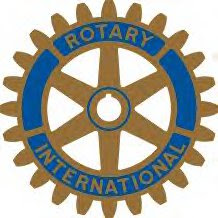
THE UN TODAY by Sheila Washinton, (Visiting Rotarian From San Diego, California)
It was Wednesday April 19th and at 8:30 am the Rotary Club NY was in session on the top floor of the German mission. It was a beautiful spring morning
for a room full of members, guests and the keynote speaker Ambassador Vanu Gopala Menon. The Ambassador is Singapore's Permanent Representative to the United Nations in New York, and concurrently Singapore's High Commissioner to Canada.
After an excellent breakfast, opening remarks and announcements, coordinator and moderator Joe Klee of the International Division of the NYC Rotary introduced Ambassador Menon. Born in Singapore, September 8, 1960, Ambassador Menon joined the Ministry of Foreign Affairs in June 1985. He served in many leadership positions, including Singapore's Chief Negotiator for the Singapore-Australia Free Trade Agreement and Chairman of the World Trade Organization's Council for TRIPS from 2003-2004. He presented his credential to the United Nations in September of 2004.
In his overview, the Ambassador's comments reminded us that the UN has evolved from an institution founded to prevent war. It has evolved into an umbrella organization whose work today revolves around a seemly ambitious and open-ended agenda. Its scope of work includes but is not limited to, human rights, economic development, world health, child welfare, women's rights, international justice, trade, and intellectual property among other tasks. The UN has been praised for helping eliminate apartheid in South Africa, coordinating the mammoth relief effort for the 2004 tsunami in Southeast Asia and setting benchmarks for combating global poverty, hunger and disease as part of its Millennium Development goals. It is not usually that the UN is the first responder coordinating efforts in times of global crisis.
However, its long list of accomplishments is usually trumped by a short list of hot-button items that create and rule its image. This includes, the stronger image of the oil-for-food program in Iraq amidst allegation of corruption, peacekeepers accused of various crimes, and its seemly ineffective human-rights commission.
The UN began with about 50 states. In its 60th year, there are 191 member states.
Supporters and critics alike agree that the United Nations needs an overhaul booth physically and institutionally. In addition, its governance and management are under attack from many directions.
The Ambassador highlighted issues for the reform process.
Building a peace keeping force that stands on its own. In most countries, the UN has the Good Housekeeping Seal of approval and has proved itself effective in peace keeping efforts. Historically, small and medium sized countries are more likely to act at the request of the UN than from an individual country. However, there is no standing UN peace keeping force for timely assignment.
Restructuring of the discredited Human Rights Commission.
It currently takes a 2/3 vote to remove a State from the Commission. A change to simple majority is one of the proposals under consideration.
Investing In Development: Both developed and developing countries have a stake in development. As globalization races on it presents new and fast moving challenges to the member states. In a final report to the UN in 2005, an action plan was outlined to achieve the goal to cut world poverty by half in a decade. Will the member States seize the opportunity to take action?
Adapting True Management Reform: Secretary General Annan announced in March a bottom-up look at how the Secretariat should be managed. The plan includes, taking certain functions out of New York and implementing rigorous monitoring for more transparency of processes and procedures.
Image Building: Recalling that the US took the lead in the creation of the UN, there is currently a substantial and vocal hostility to the UN in the US. How can the UN promote the UN in the US?
Looking Ahead
The General Assembly remains a place for discussion and achieving consensus on these and other issues. The awesome veto power the Security Council membership of 5, seem to be lessened since the end of the Cold War. Because there is a general recognition that the world is interconnected and for all practical purposes it has no borders. The biggest challenge ahead for these two main bodies is the selection of the next Secretary General by the end of 2006. The outcome of that process will be most telling for the UN's future.
Creating a more effective format for explaining the UN and a common understanding of its goals for the general public's consumption is under consideration. For instance, directing some criticism directly at the Member State maybe more appropriate. If a problem were to go to the Security Council and one of its members blocked meaningful action, is it fair to consider that action a failure of the UN or for the record, is it the result of a UN State that prevented the UN from doing its job?
In summary, the Ambassador gave Rotarians a sensitive and comprehensive picture of the UN today. He expressed deeply the commitment of his country to a vital UN that can meet its challenges effectively. It was also gratifying to learn of the dedicated work of his delegation over the years to affect meaningful change that is consistent with the global challenges.
On the face of it, it seems that since its 60th anniversary summit, the UN is taking steps to make the adjustment needed for a comprehensive overhaul of its operating structure and management.
And so it was on a beautiful spring morning in April, as we headed off in different directions, there was a better understanding and, just maybe the knowledge that the momentum for reform can be sustained. At the UN today, the glass is half full.
The hope for a better way of life for most people on this planet is still alive.









